News
Link between climate and health
View(s):- CCPSL Orator Prof. Buddhi Marambe calls for the adoption of “no-regret” options through a systematic approach by Sri Lanka
By Kumudini Hettiarachchi
It was an inauguration with a difference, when without concentrating on health alone, the spotlight was focused on the inextricably-linked climate and health. ‘Global Warming to Global Boiling?’ was the catchy start of Prof. Buddhi Marambe who delivered the oration at the inauguration of the 29th Annual Academic Sessions of the College of Community Physicians of Sri Lanka (CCPSL) held under the leadership of CCPSL President Dr. Shiromi Maduwage in Colombo recently. The inauguration on the theme ‘Public Health Through Fostering Collaboration and Building Resilience’ was graced by the Chief Guest and First Lady, Prof. Maithree Wickramasinghe, and Guest-of-Honour and Health Ministry Secretary Dr. Palitha Mahipala. Interspersing technicalities with real-life anecdotes, Orator Prof. Marambe, Senior Professor, Faculty of Agriculture, University of Peradeniya, described how when he and his wife were getting their house built in Peradeniya, the architect wanted to know whether he should attach hooks on the slab for ceiling fans. They had laughed him off, considering the salubrious and comfortable climes of Kandy……..but now, 25 years later, they were paying for their folly and depending on pedestal fans!
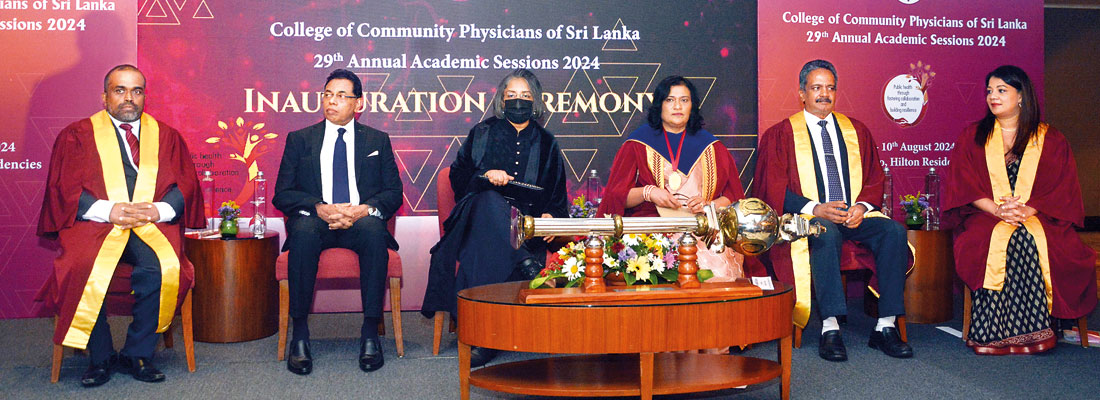
The head-table (from left): CCPSL Treasurer Dr. Pubudu Chulasiri; Guest-of-Honour Dr. Palitha Mahipala; Chief Guest Prof. Maithree Wickramasinghe; CCPSL President Dr. Shiromi Maduwage; Orator Prof. Buddhi Marambe; and CCPSL Secretary Dr Anuji Gamage. Pix by Priyanka Samaraweera
Looking at Sri Lanka, he said that since 1961, the country’s average temperature has increased at a rate of 0.01°C to 0.03°C per year. A recent analysis had shown that wet areas (Wet Zone) will be wetter and dry areas (Dry and Intermediate Zone) will be drier.
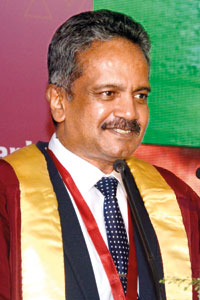
Prof. Buddhi Marambe
“This is an alarming situation as the Dry and Intermediate Zones would face water deficits, leading to significant losses of crops, livestock and aquaculture, impacting the livelihood of people. The cooler climates, meanwhile, have already shown a rapid increase in the night temperatures than the day temperature. This indicates that the central highlands of Sri Lanka would experience crop yield reductions due to the loss of dry matter due to the increased rate of night respiration. All such events would increase the probability of food insecurity in Sri Lanka,” cautioned Prof. Marambe who is former Chairman of the National Experts Committee on Climate Change Adaptation (NECCCA) of the Environment Ministry.
He explained that increasing levels of Greenhouse Gases (GHGs) in the atmosphere are directly linked to the average global temperature. Carbon dioxide (CO2) is the most abundant GHG, mainly emitted from burning fossil fuels, contributing to about two-thirds of the overall GHGs. Methane contributes to about 25% of the warming today. While the global warming potential of Methane is 80 times more than that of CO2, this is emitted from human activities (60%) and natural sources (40%).
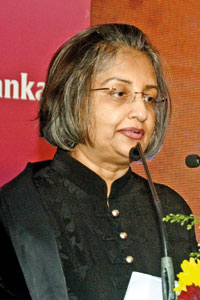
Prof. Maithree Wickramasinghe
“The most significant sources of Methane due to human activities are from agriculture (cattle and paddy fields), fossil fuels and decomposition of landfill waste,” stressed Prof. Marambe.
Linking climate change and global warming to “devastating” consequences for human health, he pointed out that the ‘Lancet Countdown’ reported that globally, the number of people exposed to extreme heat has grown exponentially due to climate change and the heat-related mortality (death) of people over 65 years of age has increased by around 85% between 2000–2004 and 2017–2021. Climate change also increases vector-borne diseases and reduces water quality, putting at riskhuman health and sanitation.
Prof. Marambe urged that countries need to develop implementable commitments to bring them in line with the 1.5-degree world aligning with the Paris Agreement. To keep this Paris Agreement target within reach, the world has recognized that the energy sector should reach net zero emissions by 2050, by speeding up the transition away from fossil fuels and utilizing zero- and low-carbon fuels well before or by around mid-century. The next two years will be critical in global climate negotiations, as the countries need to establish a new climate finance goal.
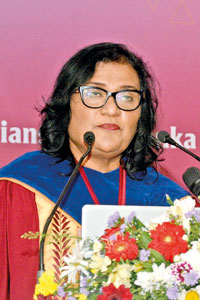
Dr. Shiromi Maduwage
Sri Lanka has already committed to becoming carbon net zero by 2050; achieving 70% renewable energy in electricity generation by 2030; and not to embark on capacity addition of coal power plants, he said, looking at the progress achieved.
Sri Lanka has updated its National Policy on Climate Change in 2023 and its National Determined Contributions (NDCs) in 2021; established the NDC Implementation Plan (2021-2030) in 2023, the Climate Prosperity Plan (CPP) in 2022, and the 2050 Carbon Net Zero Road Map and Strategic Plan in 2023.
The CPP has identified US$ 26.53 billion and the Net Zero Strategic Plan US$ 140 billion as the financial requirement from national (including private sector) and international donor agencies to support these climate actions until 2030 and 2050, respectively. “Therefore, we need to attract donor funding to support the ambitious climate actions identified by the country,” he reiterated.
Prof. Marambe said that the new Climate Change Act of Sri Lanka is in the final stages of drafting and a Climate Change Office (CCO) has been set up this year at the Presidential Secretariat, while the Climate Change Secretariat of the Ministry of Environment had been established in 2008. Among other initiatives, the International Climate Change University (ICCU) is to start operations soon.The country has also proposed the ‘Tropical Belt Initiative’ and ‘Climate Justice Forum’ to attract global attention to climate actions in developing countries.The Peradeniya University has initiated activities to establish a ‘Climate Change Lab’ to strengthen collaboration and coordination with the ICCU and CCO.
Calling for the adoption of “no-regret” options through a systematic approach by Sri Lanka, he stressed that climate vulnerabilities should be assessed periodically using the latest scientific methodologies and technology needed to respond to climate challenges should be identified. These technologies should be secured through global partnerships and climate financing.
“Climate actions should not be decided upon haphazardly but through informed decision-makingwith broader stakeholder consultation,” Prof. Marambe added.
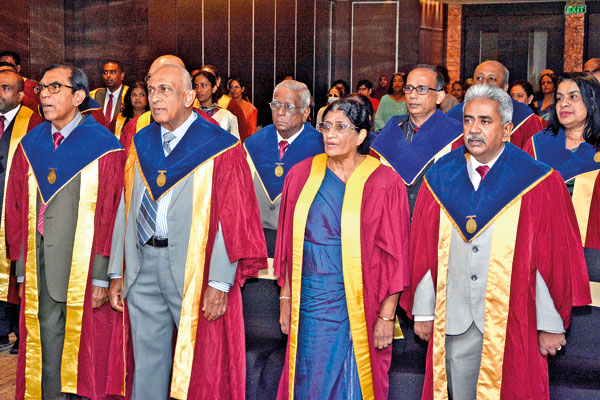
The audience
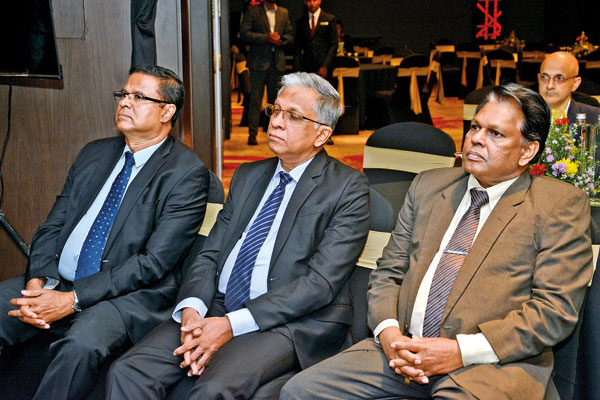
Top Health Ministry officials, in the centre is Director-General of Health Services, Dr. Asela Gunawardena, at the inauguration
The best way to say that you found the home of your dreams is by finding it on Hitad.lk. We have listings for apartments for sale or rent in Sri Lanka, no matter what locale you're looking for! Whether you live in Colombo, Galle, Kandy, Matara, Jaffna and more - we've got them all!

